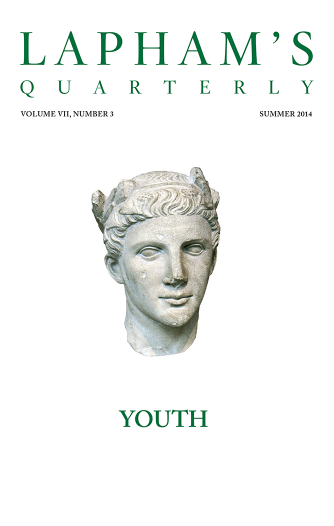Two numbskulls, acting out of respect, alternately escorted each other home after a dinner party and never got to bed.
A man encountered a numbskull and said, “The slave you sold me died.” “By the gods,” he said, “he didn’t do anything like that when he was with me.”
A person went to a numbskull doctor and said, “Doctor, whenever I get up from sleeping, I’m groggy for a half hour and only after that am I all right.” The doctor: “Get up a half hour later.”
There were twin brothers, and one of them died. When a numbskull encountered the survivor, he asked, “Was it you who died, or your brother?”
Wanting to train his donkey not to eat, a numbskull stopped giving him any food. When the donkey died of starvation, the man said, “What a loss! Just when he had learned not to eat, he died.”
A numbskull who was going on a trip was asked by a friend to buy him two slaves, each fifteen years old. “Certainly,” he said, “and if I can’t find you two fifteen-year-olds, I’ll buy you one thirty-year-old.”
Two patricidal numbskulls were angry that their fathers were still alive. One said, “So, shall we each strangle our own father?” “No, no,” said the other, “we don’t want to be called patricides. But if you want, you kill my father, and I’ll kill yours.”
A numbskull encountered a friend of his and said, “I heard that you had died.” He replied, “Well, you can see that I’m alive.” To which the numbskull said, “But the person who told me is much more trustworthy than you are.”
A numbskull saw his family doctor coming and kept himself out of sight. “I haven’t been sick for a long time, and I feel ashamed.”
A numbskull who was having an argument with his father said to him, “You good-for nothing, can’t you see what kind of loss you have caused me? If you hadn’t been born, I would have been my grandfather’s heir.”
While a numbskull was voyaging, a powerful storm raged, and his slaves were railing. “Don’t cry,” he said. “I have set all of you free in my will.”
When a numbskull heard from someone that his beard was coming, he went away to the gate to await it. Another fool, after inquiring and learning about the situation, said, “People are justified in calling us idiots. How do you know that it’s not coming through the other gate?”
A numbskull was sleeping with his father. During the night he would stand up on bed and eat some of the grapes that were hanging overhead. His father hid a lamp under a pot and, when the son stood up, suddenly showed the light. The son started snoring as he stood upright, pretending to be asleep.
During the night a numbskull got into bed with his grandmother. When his father beat him on account of this, he said, “You’ve been screwing my mother for a long time without any trouble from me, and now you’re angry at finding me with your mother just once?”
© 1998, Indiana University Press. Used with permission of Indiana University Press.
Hierocles and Philagrius, from The Laughter Lover. Little is known about this book’s authors or the pedigree of its 265 jokes, although references in some date the work to the third or fourth century. About jokes in ancient Greece, Athenaeus, the author of The Sophists at Dinner, wrote that a group of Athenians known as the Sixty gathered at the Heracleum in the town of Diomea to exchange quips, “and their reputation for amusing qualities was so great that Philip the Macedonian heard of it and sent them a talent to engage them to write out their witticisms and send them to him.”
Back to Issue



